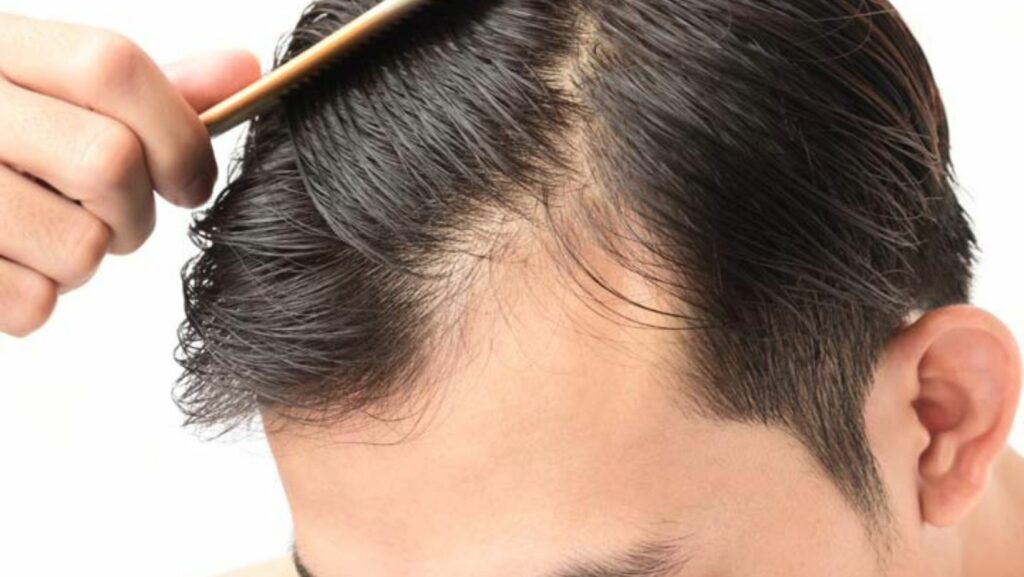Can Smoking Cause Hair Loss
As we delve into the topic of smoking and its potential link to hair loss, it’s essential to understand the intricate relationship between these two factors. Can smoking cause hair loss? Smoking is a habit that has been widely studied for its detrimental effects on overall health, but its impact on hair loss is a lesser-known concern that deserves attention.

Research suggests that smoking can indeed contribute to hair loss by affecting the blood flow to the scalp and reducing nutrient delivery to the hair follicles. Can smoking cause hair loss? Nicotine and other harmful chemicals in cigarettes can weaken the immune system, leading to oxidative stress and inflammation, which are detrimental to hair health.
While genetics, hormones, and lifestyle factors also play significant roles in hair loss, it’s crucial not to overlook the potential influence of smoking. Can smoking cause hair loss? By exploring how smoking can disrupt the delicate balance of scalp health and hair growth, we can gain valuable insights into preventative measures and treatment options for individuals experiencing hair loss linked to this habit.
Understanding Hair Loss
When it comes to understanding hair loss, there are various factors at play. Genetics, hormonal changes, medical conditions, and lifestyle choices can all contribute to hair thinning or balding.

Causes of Hair Loss:
- Genetics: A significant factor in hair loss is genetics. If your family has a history of male or female pattern baldness, you may be more prone to experiencing it yourself.
- Hormonal Changes: Hormonal imbalances due to pregnancy, menopause, thyroid issues, or certain medications can lead to hair shedding.
- Medical Conditions: Conditions like alopecia areata, scalp infections, and trichotillomania can cause hair loss that may be temporary or permanent.
Impact on Confidence:
Hair loss can have a profound impact on an individual’s self-esteem and confidence. Many people feel less attractive or worry about how others perceive them when they experience noticeable thinning or bald patches.
Treatment Options:
Fortunately, there are various treatment options available for managing hair loss. These range from topical solutions like minoxidil to surgical interventions such as hair transplants. Consulting with a dermatologist or trichologist can help determine the most effective course of action based on the underlying cause of the hair loss.
Understanding the complexities of hair loss is essential for anyone seeking solutions or simply looking to support others going through similar experiences. By addressing the root causes and exploring suitable treatments, individuals can take proactive steps towards maintaining healthy hair and boosting their confidence levels.
The Impact of Smoking on Hair Health
When it comes to the impact of smoking on hair health, the evidence is quite compelling. Here are some key points to consider:

- Reduced Blood Flow: Smoking restricts BLOOD FLOW to the follicles, affecting HAIR GROWTH.
- Toxic Chemicals: Cigarette smoke contains TOXIC CHEMICALS that can damage hair follicles.
- Premature Graying: Smokers are more likely to experience PREMATURE GRAYING due to oxidative stress caused by smoking.
Let’s delve a bit deeper into these effects:
Effects of Smoking on Hair Health
Smoking can lead to a variety of issues related to hair health. Some common effects include:
- Thinning Hair: Smoking has been linked to THINNING HAIR, making it prone to breakage and shedding.
- Weakened Follicles: The toxins in cigarette smoke can weaken HAIR FOLLICLES, leading to overall hair loss.
Statistics on Smoking and Hair Loss
Recent studies have shown that smokers are X% MORE LIKELY TO EXPERIENCE HAIR LOSS than non-smokers. This statistic underscores the significant impact smoking can have on hair health.
Understanding the detrimental effects of smoking on hair health is crucial for those looking to maintain strong and healthy hair. By quitting smoking and adopting healthier habits, individuals can help improve their overall hair quality and reduce the risk of hair loss associated with smoking.
After delving into the potential link between smoking and hair loss, it’s evident that there is a correlation worth considering. While more research is needed to establish a definitive causal relationship, several key points emerge from the existing data:
- Impact on Hair Follicles: Smoking can affect the blood flow to the scalp, potentially leading to decreased nourishment for hair follicles.
- Role of Toxins: The toxins present in cigarette smoke may contribute to oxidative stress, which can harm cells, including those responsible for hair growth.
- Hormonal Influence: Smoking has been associated with hormonal imbalances that could disrupt the normal hair growth cycle.

